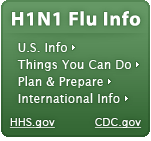OTRAS NOTICIAS DE LAS ENFERMEDADES RARAS
UNDERSTANDING GENOME EDITING
LAST REVIEWED 27/09/2017
Genetic Alliance UK's and Progress Educational Trust's joint project on communication and understanding of genome editing is complete.
WHAT WERE THE AIMS OF THE PROJECT?
The project aimed to explain genome editing to patients, parents and carers affected by genetic conditions to enable them to discuss genome editing and participate in future discussions about this important technology. During the progress of the project, the Genetic Alliance UK and Progress Educational Trust teams worked with the project participants to identify the most appropriate way to describe genome editing while focusing on its most crucial aspects.
WHO TOOK PART?
Genetic Alliance UK convened a group of 18 people affected by genetic conditions, including: inherited breast cancer risk, cystic fibrosis, Ehlers-Danlos syndrome, epidermolysis bullosa, leukaemia, muscular dystrophy, Niemann-Pick disease, Noonan syndrome, primary ciliary dyskinesia, sickle cell disease and thalassaemia. Progress Educational Trust convened a group of people working in the fertility and infertility area. These groups met in a series of workshops, each with expert speakers, and had the opportunity to visit an Institute of Cancer Research laboratory using genome editing to carry out research.
WHAT ARE THE FINDINGS AND WHO ARE THEY AIMED AT?
The key recommendations of this work are in the first instance aimed at scientists who need to talk about genome editing with non-expert audiences, but the majority of them can be broadly applied. The report recommends a focus on genome editing rather than the tools or techniques that carry-out genome editing, and so to deprioritise the use of terms like 'CRISPR' unless necessary. The focus should instead be on the purpose or potential use of genome editing. It is also crucial to be clear about the scope of individual uses of genome editing. We need to distinguish clearly between uses that benefit human health and other purposes such as agriculture. Is this technology available now, soon, or is this many years away? Is genome editing being used as tool for research, or will the genome editing be part of a therapy? Would changes in the law be necessary to use genome editing in this way? The clearer we can be, the better the chance we have of communicating effectively on this subject.
The full report contains our findings in full, including our key recommendations, and our guidance to scientists explaining genome editing in public. Annexes to the report which explain our methodology in greater detail are available here.
WHAT NEXT?
The project team and the participants are keen to carry on talking about genome editing. We would like to begin to explore some of the ethical issues that surround genome editing. Genetic Alliance UK are working to secure funds to continue the work.
We would like to thank Wellcome for funding this project, and Progress Educational Trust, the speakers and facilitators at our workshops, and most of all the participants, without which the work would not have been possible.





















.png)










No hay comentarios:
Publicar un comentario